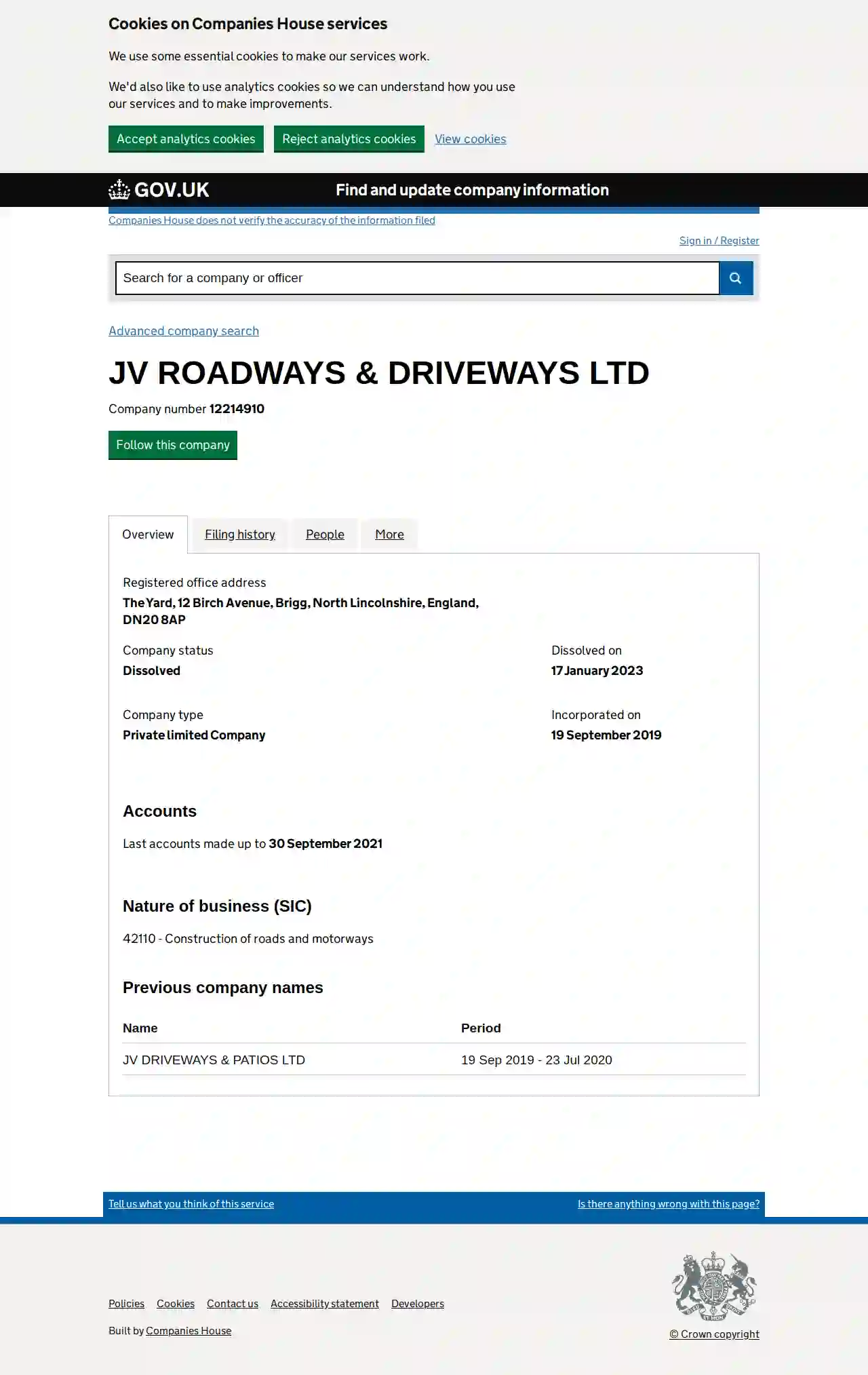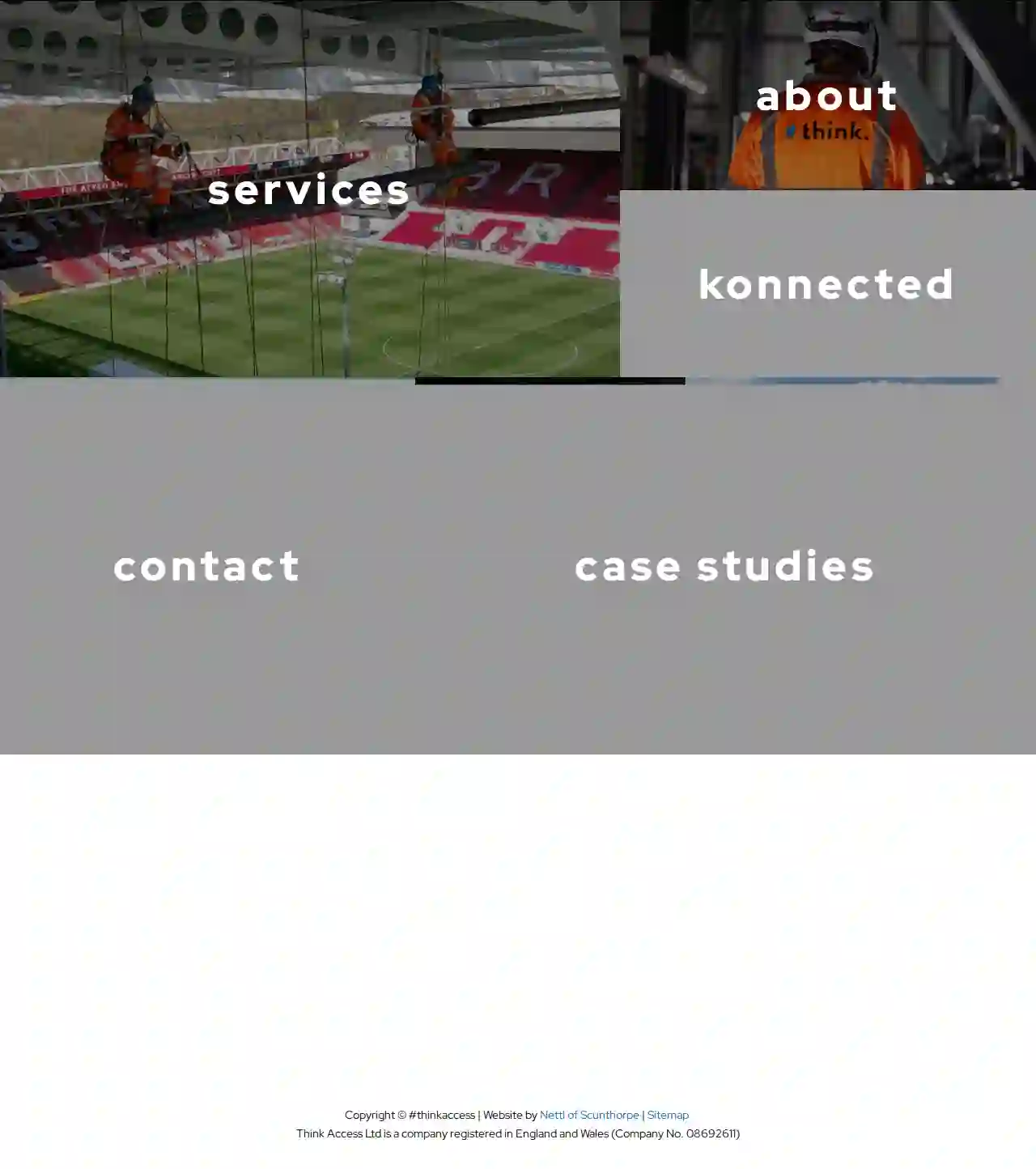Excavation Contractors Haxey
Top 10 Digging Contractors in Haxey
Get multiple Excavation Services quotes for your project today! Compare profiles, reviews, accreditations, portfolio, etc... and choose the best offer.

Mantank Environmental Services Scunthorpe
3.73 reviewsHill House Farm, Redmarshall Road, Redmarshall, Stockton on Tees, Stockton-on-Tees, TS21 1EW, GBMantank Environmental Services Mantank Environmental Services is a leading provider of environmental and drainage services across the UK. We have been trusted by our customers to deliver excellence since 1995, and we are committed to providing our clients with the highest quality services at competitive prices. Our Services We offer a wide range of services to meet the needs of our clients, including: Tank Cleaning Industrial Cleaning Sewage Tank Cleaning Tank Decommissioning Chemical Waste Disposal Environmental Services UK Water Tank Cleaning Dewatering Services Waste Management Company Water Jetting Vessel Cleaning Industrial Vacuum Sludge and Silt Removal Industrial Tank Cleaning SuDS Pond Maintenance CCTV Drain Survey Drain Camera Drain Clearance Drain Inspection Drain Repair Drainage Services Our Commitment to Excellence We are committed to providing our clients with the highest quality services. We are fully accredited and insured, and we have a team of experienced and qualified professionals who are dedicated to providing our clients with the best possible service. Contact Us If you are looking for a quote or just some advice, please feel free to contact us. We are always happy to help.
- Services
- Why Us?
- Accreditations
- Gallery
Get Quote
Emerge Construction & Civils
4.312 reviews165 Church Lane, Scunthorpe, DN15 7HD, GBBuilding tomorrow today At Emerge, our innovative techniques and decades of expertise set us apart. We offer comprehensive services, ensuring a seamless, stress-free experience from start to finish. Committed to excellence, we meet deadlines, stay within budget, and deliver superior quality. Choose Emerge for a construction partner dedicated to precision, integrity, and your satisfaction. Decades of construction expertise We are a reputable, experienced collective founded in Lincolnshire. Our company’s formed by a collective of construction experts with over 20 years of industry experience driven by a passion for quality and a commitment to our customers. Our mission is to provide a service that does not only meet but exceed the expectations of our clients, creating lasting relationships built on trust and satisfaction. We envision a future where our solutions not only advance industry standards but also contribute to a sustainable and thriving community. At the core of our philosophy is the belief that integrity, creativity, and customer-centricity are the keys to success. We invite you to join us on this journey, as we strive to create value and make a positive impact in everything we do.
- Services
- Why Us?
- Gallery
Get Quote
Jv Roadways & Driveways Ltd
4.56 reviewsScunthorpe, GBCompanies House is a government agency that provides information about companies registered in the UK. You can use our services to find and update company information, file accounts, and order certificates. We also provide information about disqualified directors and company name availability. We are committed to providing a high-quality service to our users. We are constantly improving our services and adding new features. We welcome your feedback on how we can improve our services.
- Services
- Why Us?
Get Quote
Sword Construction UK Ltd
35 reviewsThe Old Brickyard, Island Carr Road Industrial Estate, Brigg, North Lincolnshire, DN20 8PD, GBAbout Sword Sword Construction UK Limited is an established civil engineering contractor. The Company's Board is chaired by Ian Sword, its former Managing Director, with more than 50 years’ experience in the Construction Industry, and led by its Managing Director Anil Patel with more than 30 years experience. Sword has built trust and lasting relationships through the delivery of safe, innovative, and responsible solutions for infrastructure. The company, whilst predominantly providing civil engineering services, also offers highly specialised labour hire and through its affiliated Company Jacal Construction Equipment Plant Hire Ltd the hire of Construction Equipment. For our Modern Slavery Policy see our Policies.
- Services
- Why Us?
- Gallery
Get Quote
M Toyne Groundworks
44 reviewsScunthorpe, GBM Toyne Groundworks: Your Trusted Civil Engineering Partner M Toyne Groundworks is a reputable civil engineering company dedicated to providing exceptional services to both the public and private sectors. We boast a wealth of experience in a wide range of construction and civil engineering projects, ensuring we can meet your specific needs. Our team of skilled professionals is committed to delivering high-quality workmanship and exceeding client expectations. We take pride in our attention to detail, ensuring every project is completed to the highest standards. We understand the importance of working closely with our clients, providing clear communication and regular updates throughout the project lifecycle. Our goal is to build lasting relationships based on trust, transparency, and mutual respect. Whether you require drainage solutions, foundation construction, or any other civil engineering service, M Toyne Groundworks is your reliable partner. We are committed to delivering projects on time and within budget, while maintaining the highest safety standards. Contact us today for a free, no-obligation quote and let us help you bring your vision to life.
- Services
- Why Us?
- Gallery
Get Quote
Think Access Ltd
41 reviewsUnit 1, The Courtyard, Scunthorpe, GBThink Access We are a leading provider of access solutions for the construction, events and infrastructure industries.
- Services
- Why Us?
- Gallery
Get Quote- HC
HCM Contractors Ltd
3.65 reviewsScunthorpe, GB- Services
- Why Us?
Get Quote - Pa
Pappy Diggers
57 reviewsScunthorpe, GB- Services
- Why Us?
Get Quote - Bu
Burr Solutions
Scunthorpe, GB- Services
- Why Us?
Get Quote - Ma
Maxfield Excavation
Scunthorpe, GB- Services
- Why Us?
Get Quote
Over 13,059+ Excavation Contractors in our network
Our excavation contractors operate in Haxey and surrounding areas!
ExcavationHQ has curated and vetted the Best Excavation Companies near Haxey. Find a reliable pro today.
Frequently Asked Questions About Excavation Contractors
- Basement Size: The larger the basement, the more excavation is required, increasing the cost.
- Soil Type: Excavating rocky or dense clay soil is generally more expensive than loose soil.
- Accessibility: Difficult-to-access sites might require specialized equipment or more labor, driving up costs.
- Foundation Type: The chosen foundation type (full basement, crawl space, slab) affects excavation needs.
- Underpinning: If underpinning (strengthening existing foundations) is necessary, it significantly increases costs.
- Disposal Fees: Hauling excavated soil to disposal sites adds to the overall expense.
- Topsoil Removal: Stripping the fertile topsoil layer from a site, often preserving it for landscaping.
- Trench Excavation: Digging long, narrow trenches for utilities (pipes, cables) or foundations.
- Basement Excavation: Removing earth to create a space for a basement beneath a structure.
- Pool Excavation: Digging a precise hole for installing a swimming pool.
- Roadway Excavation: Removing earth and preparing the ground for road construction.
- Demolition Excavation: Clearing debris and preparing the site after demolition.
- Channel Excavation: Creating channels for drainage or irrigation.
- New Construction: Laying foundations, basements, or underground utilities for new buildings.
- Home Additions: Creating space for new rooms, basements, or extensions.
- Landscaping: Leveling ground, creating slopes, installing retaining walls, or digging for ponds or pools.
- Drainage Improvement: Installing French drains, drainage ditches, or swales to manage water runoff.
- Utility Installation or Repair: Laying new water, sewer, gas, or electrical lines, or repairing existing ones.
- Demolition: Clearing debris and preparing the site after demolishing a structure.
What is the difference between cut and fill excavation?
Cut: Involves excavating soil from an area where the existing grade is higher than the desired grade.
Fill: Refers to using the excavated soil ('cut' material) to raise the grade in an area where the existing grade is lower than desired.
This method minimizes the need to import or export soil, reducing costs and environmental impact. It's commonly used for site preparation, road construction, and landscaping.
How much does it cost to excavate a basement?
What are the different types of excavation?
How do I know if I need excavation for my project?
What is the difference between cut and fill excavation?
Cut: Involves excavating soil from an area where the existing grade is higher than the desired grade.
Fill: Refers to using the excavated soil ('cut' material) to raise the grade in an area where the existing grade is lower than desired.
This method minimizes the need to import or export soil, reducing costs and environmental impact. It's commonly used for site preparation, road construction, and landscaping.
How much does it cost to excavate a basement?
- Basement Size: The larger the basement, the more excavation is required, increasing the cost.
- Soil Type: Excavating rocky or dense clay soil is generally more expensive than loose soil.
- Accessibility: Difficult-to-access sites might require specialized equipment or more labor, driving up costs.
- Foundation Type: The chosen foundation type (full basement, crawl space, slab) affects excavation needs.
- Underpinning: If underpinning (strengthening existing foundations) is necessary, it significantly increases costs.
- Disposal Fees: Hauling excavated soil to disposal sites adds to the overall expense.
What are the different types of excavation?
- Topsoil Removal: Stripping the fertile topsoil layer from a site, often preserving it for landscaping.
- Trench Excavation: Digging long, narrow trenches for utilities (pipes, cables) or foundations.
- Basement Excavation: Removing earth to create a space for a basement beneath a structure.
- Pool Excavation: Digging a precise hole for installing a swimming pool.
- Roadway Excavation: Removing earth and preparing the ground for road construction.
- Demolition Excavation: Clearing debris and preparing the site after demolition.
- Channel Excavation: Creating channels for drainage or irrigation.
How do I know if I need excavation for my project?
- New Construction: Laying foundations, basements, or underground utilities for new buildings.
- Home Additions: Creating space for new rooms, basements, or extensions.
- Landscaping: Leveling ground, creating slopes, installing retaining walls, or digging for ponds or pools.
- Drainage Improvement: Installing French drains, drainage ditches, or swales to manage water runoff.
- Utility Installation or Repair: Laying new water, sewer, gas, or electrical lines, or repairing existing ones.
- Demolition: Clearing debris and preparing the site after demolishing a structure.